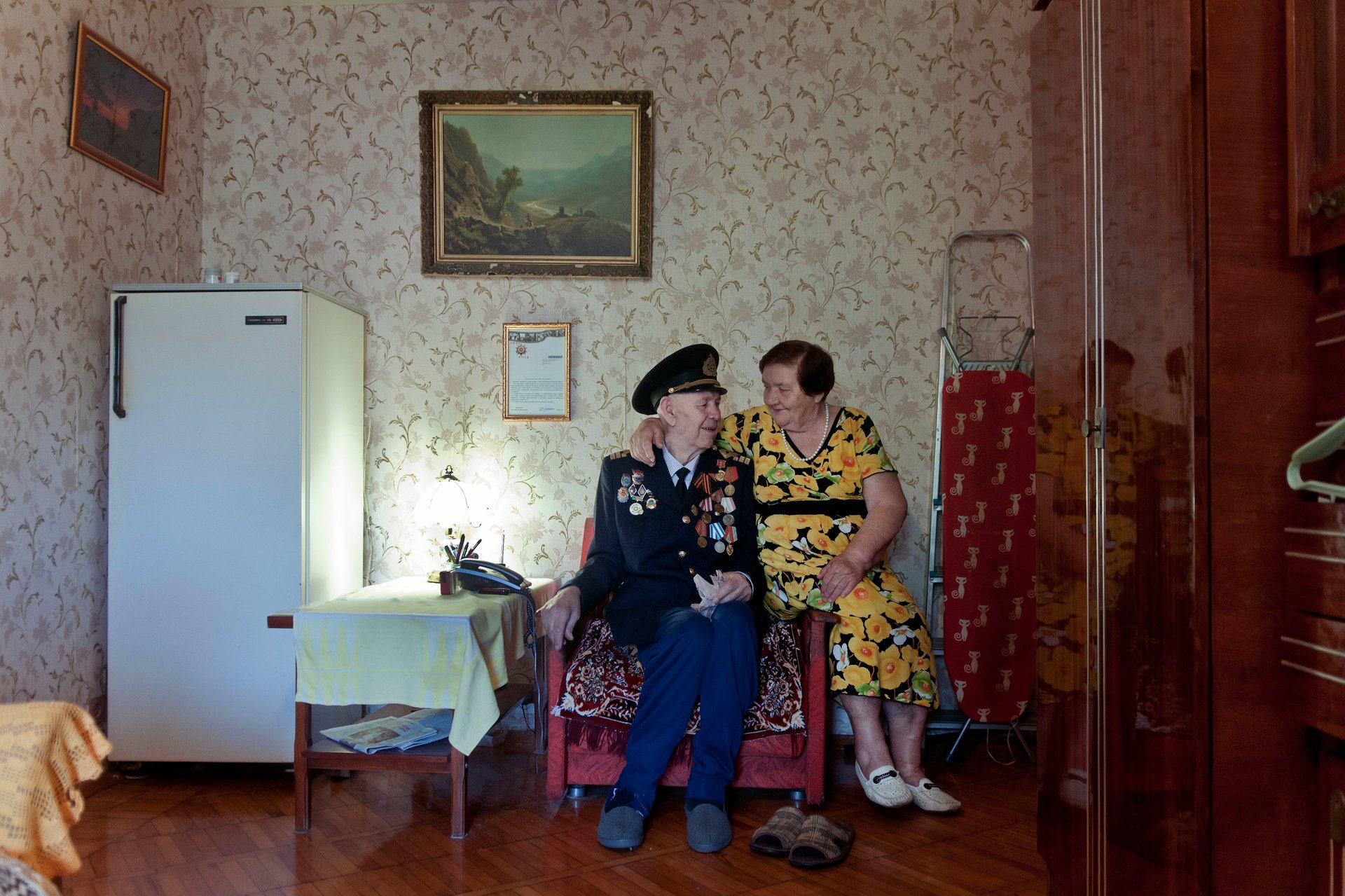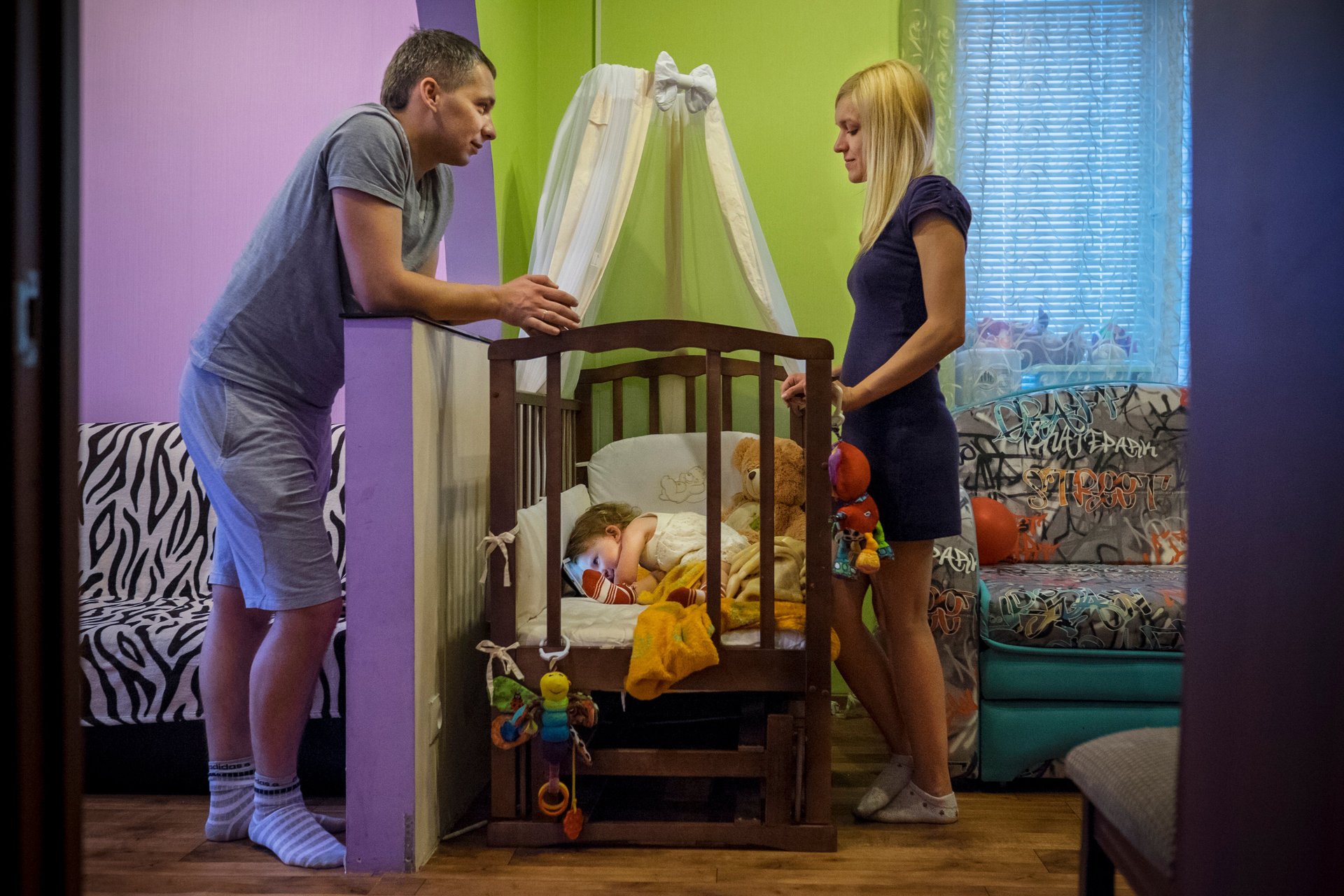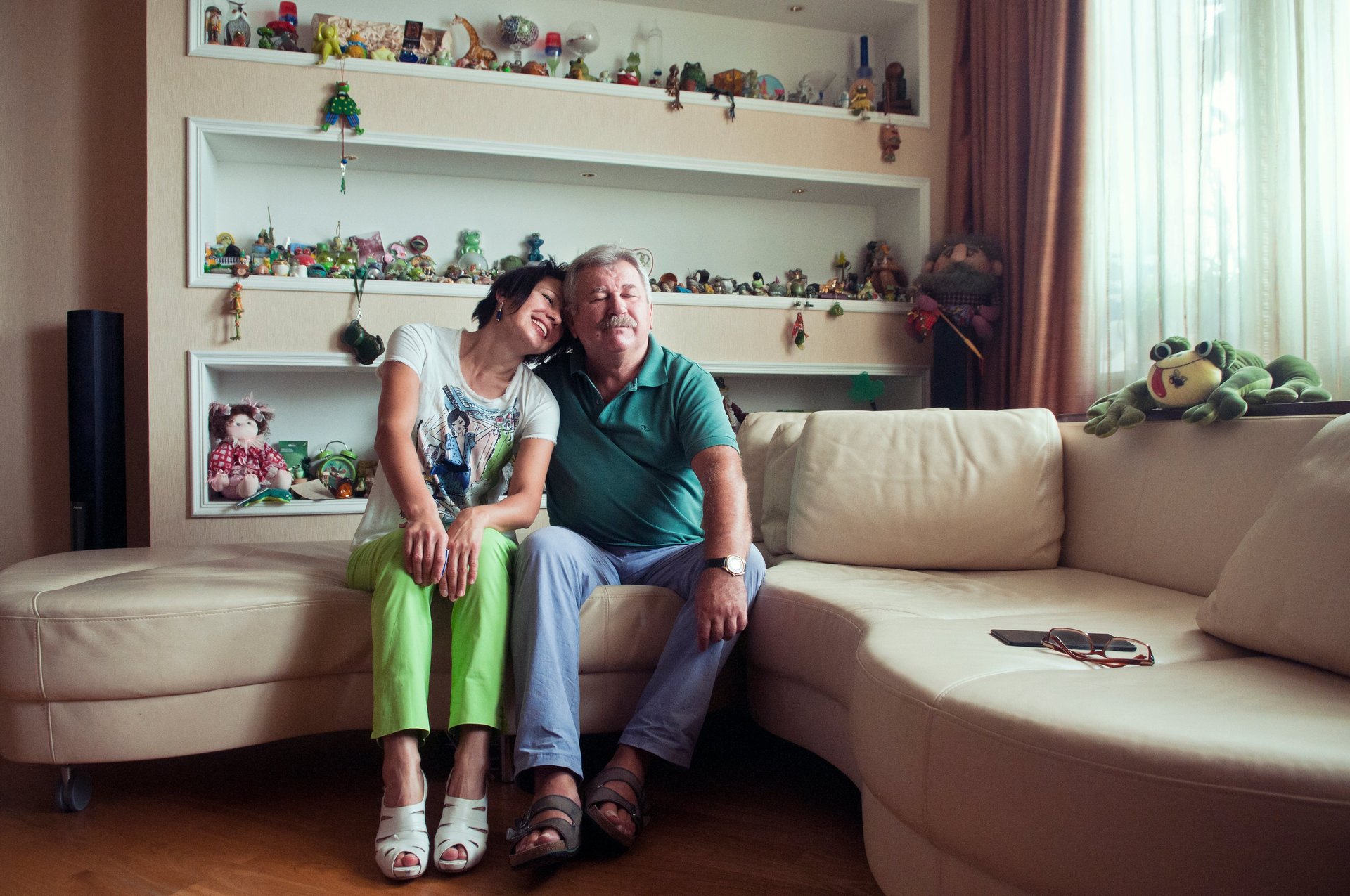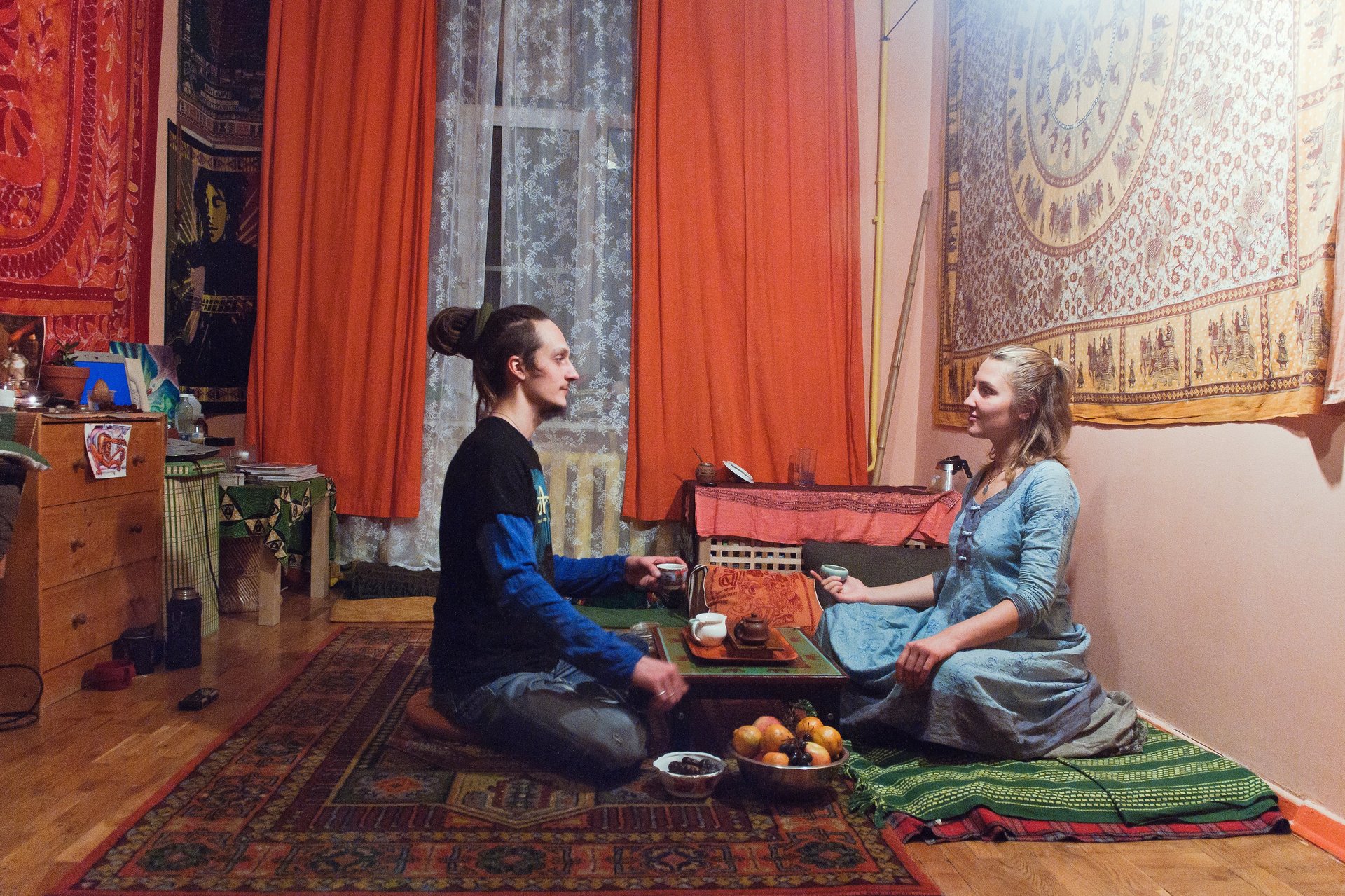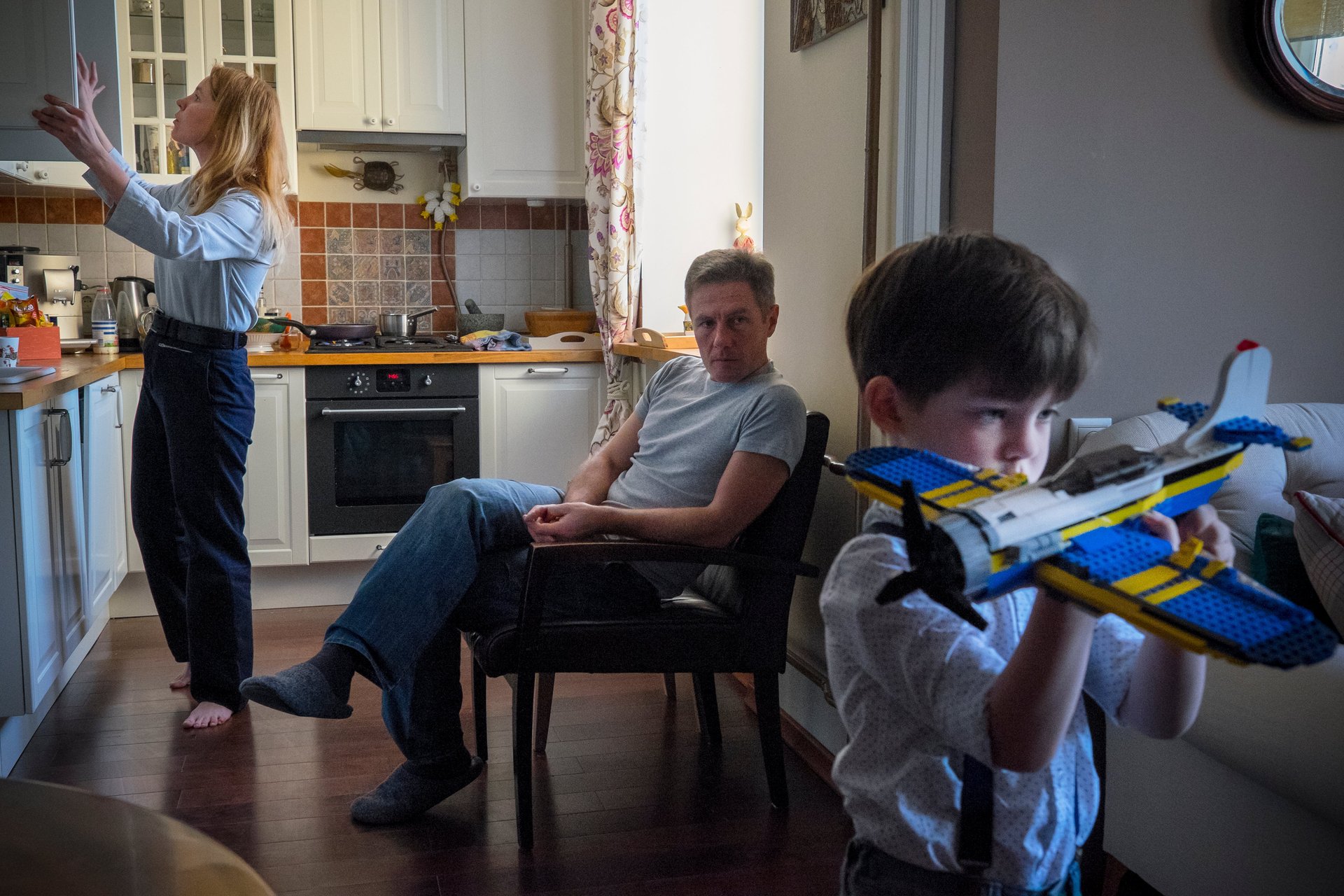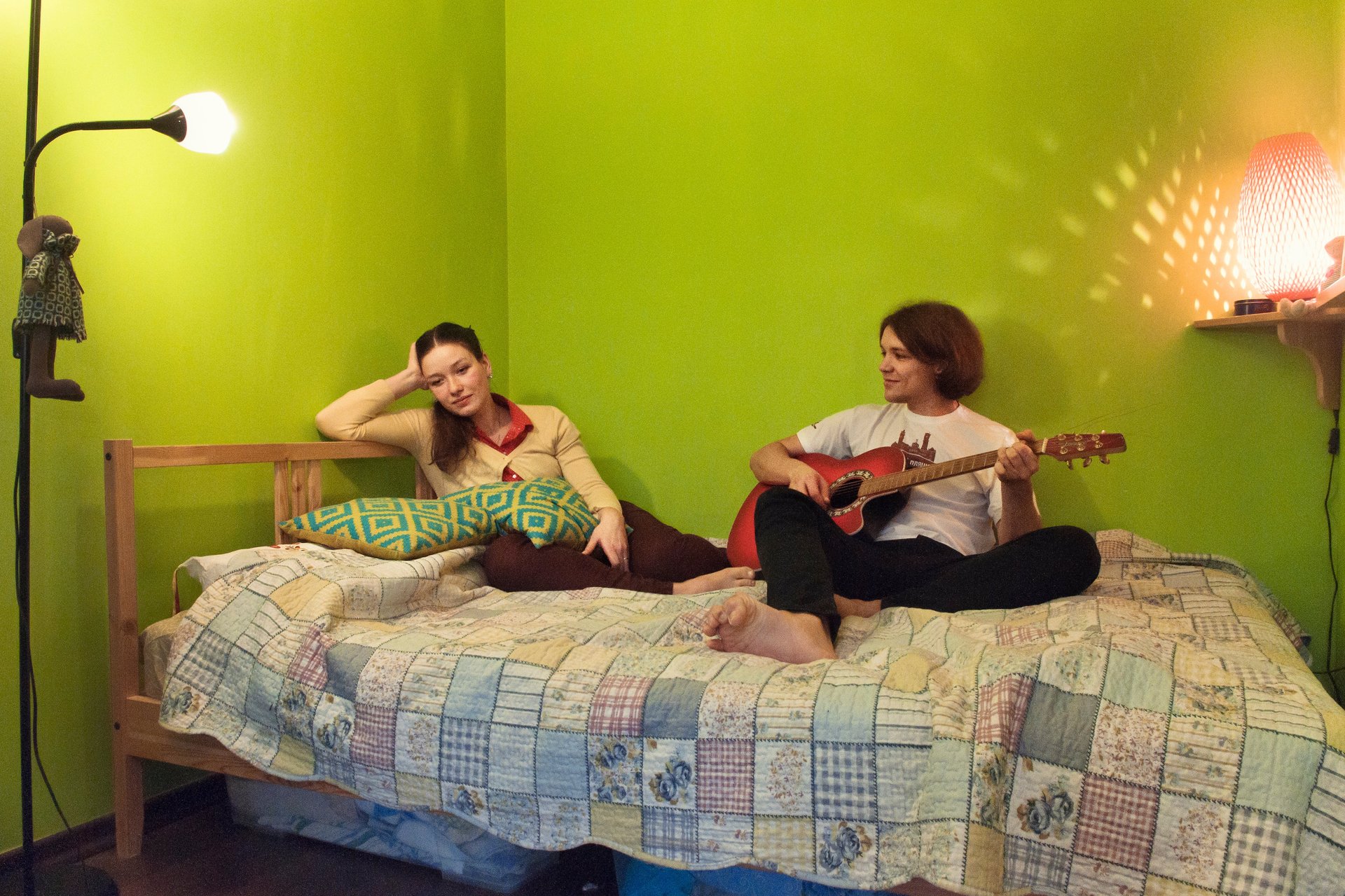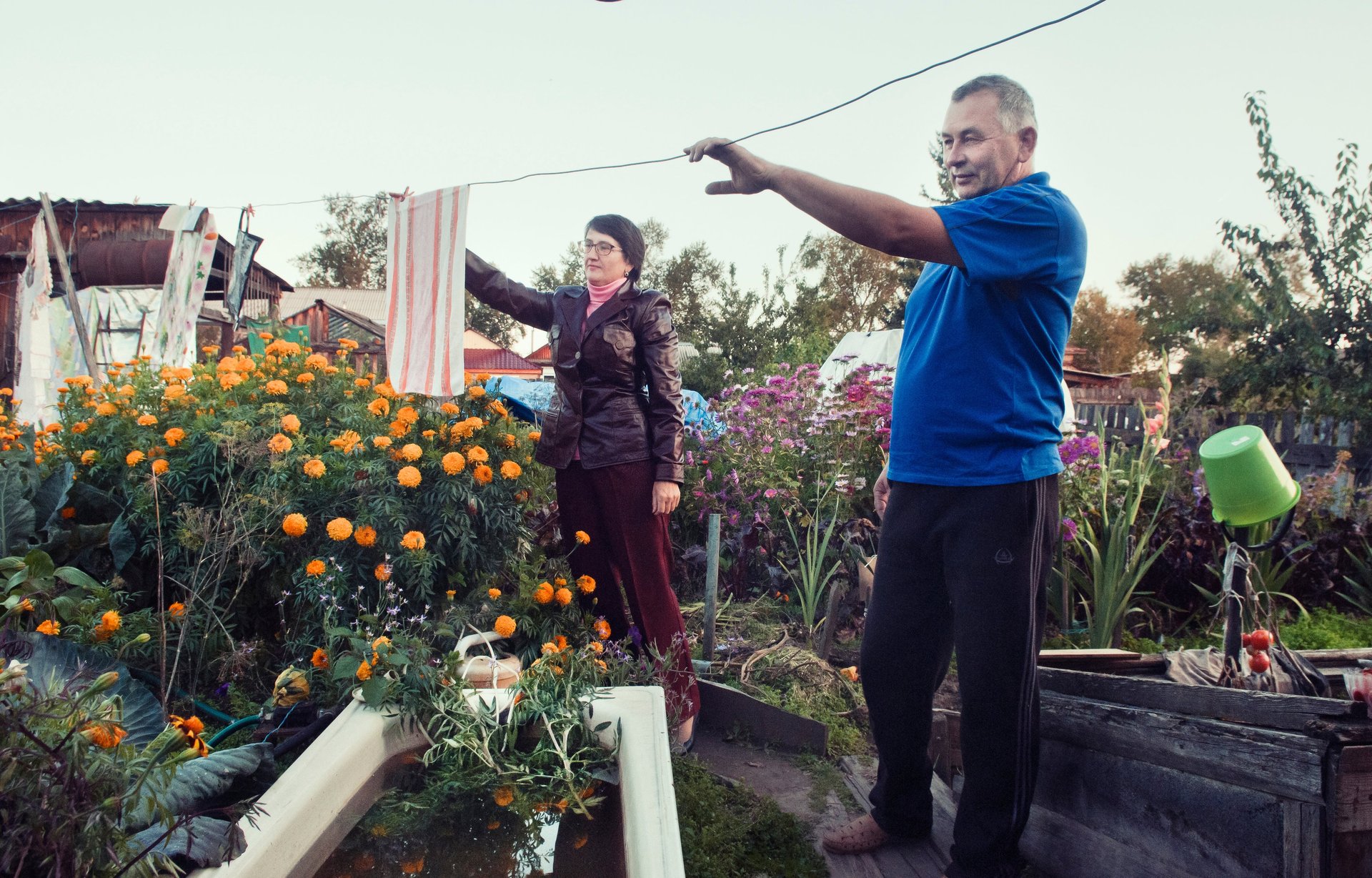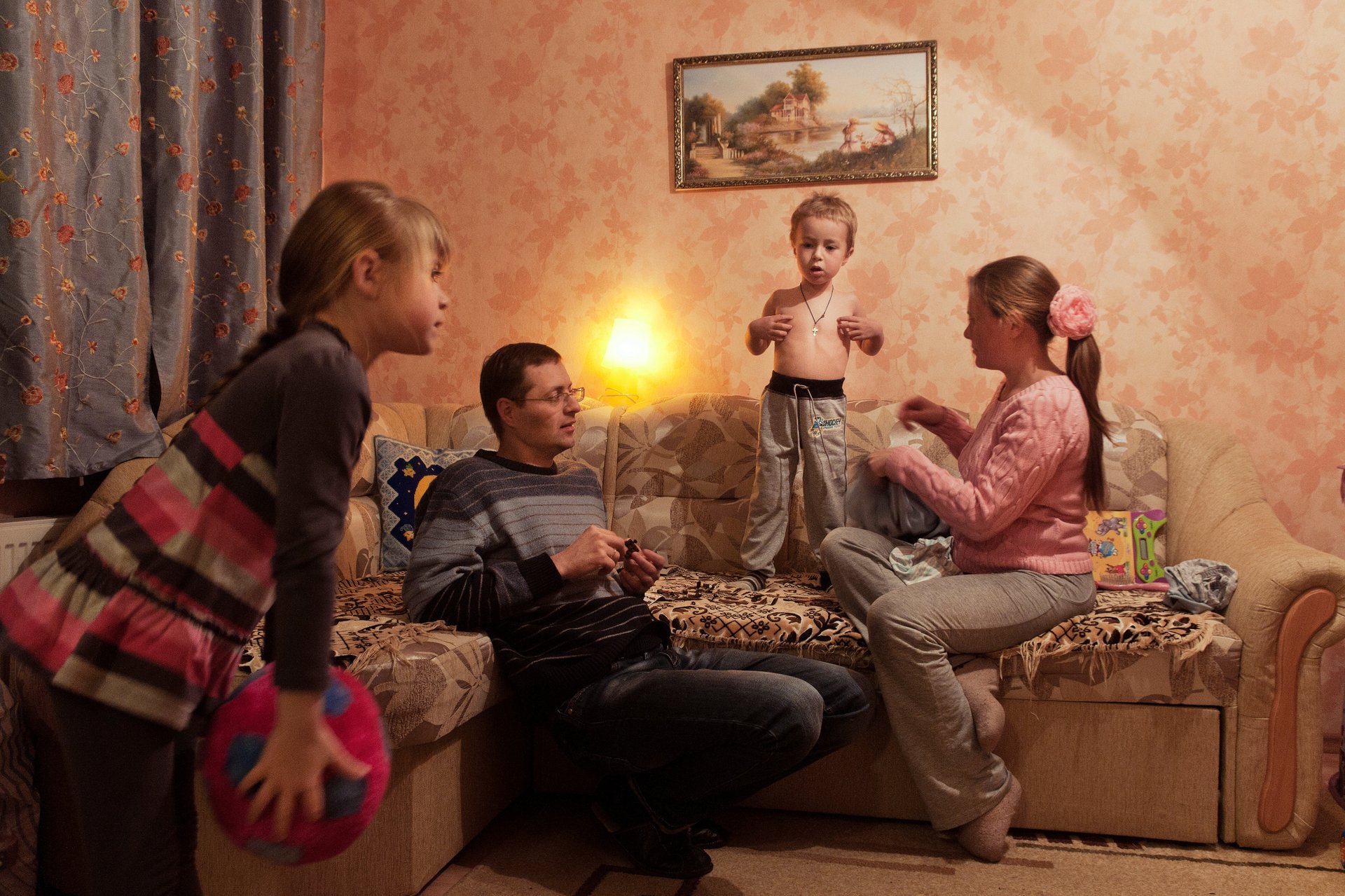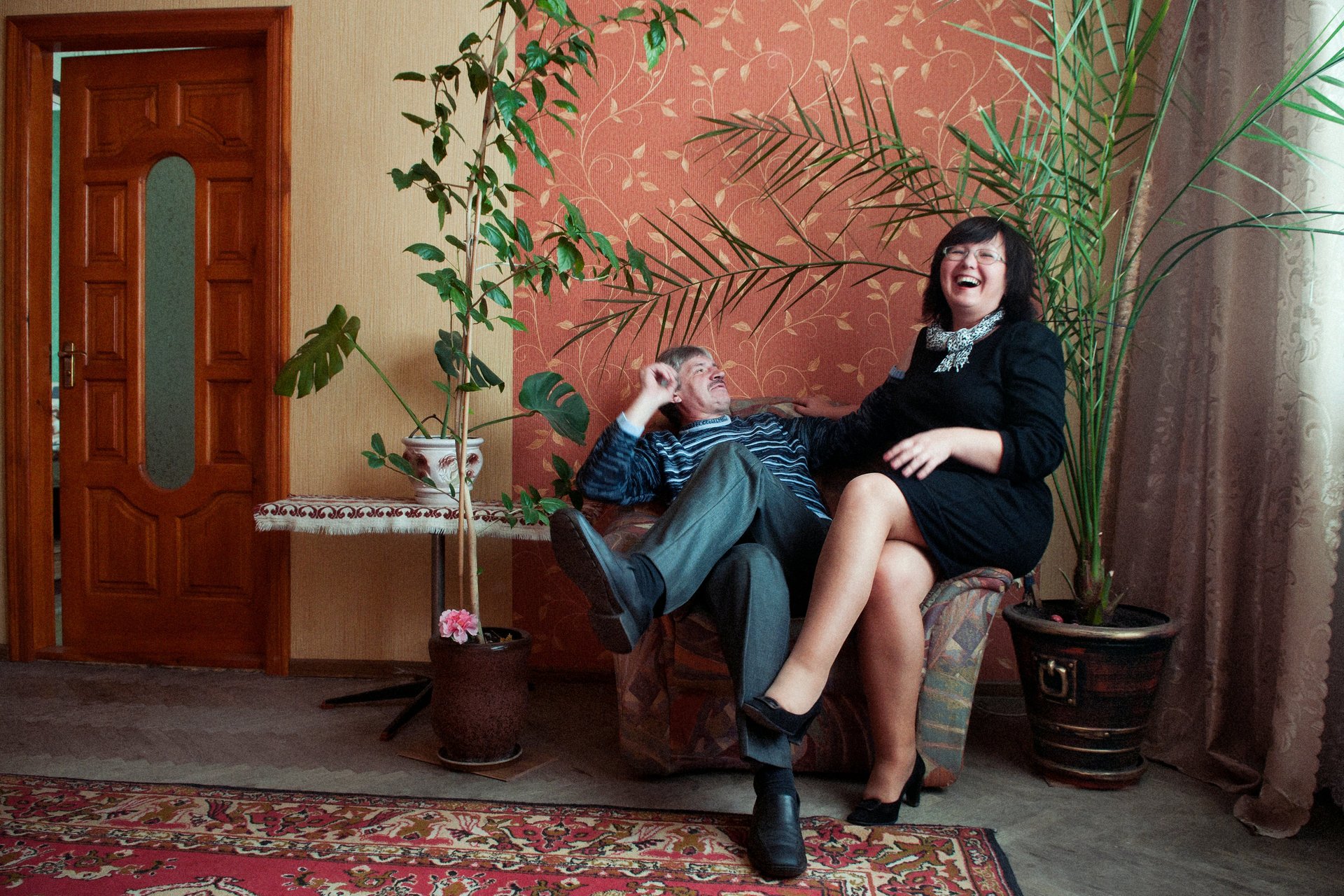Ukrainian and Russian lovers unite in poignant plea for peace
It all started with a visit to her parents in Kharkov, Ukraine, last May.


It all started with a visit to her parents in Kharkov, Ukraine, last May.
“My heart was broken when I realized that many friends and families have been divided by barriers and opinions,” photographer Oksana Yushko told Quartz. Strife in Crimea and more recently across swathes of eastern Ukraine has polarized communities and shredded friendships. “Propaganda from both sides has made myths into reality in people’s minds,” she said.
Yushko’s parents seem to bridge this divide. Her mother, born in Russia, and her father, who was born in Ukraine, are both scientists and have been together for close to five decades.
“My idea was very simple. I photographed them and posted their picture on my Facebook page with some words and the hashtags #love, #nowar, #friendship etc.,” Yushko said. “It was my message to my friends to listen to each other and to think about what should we do for peace.”
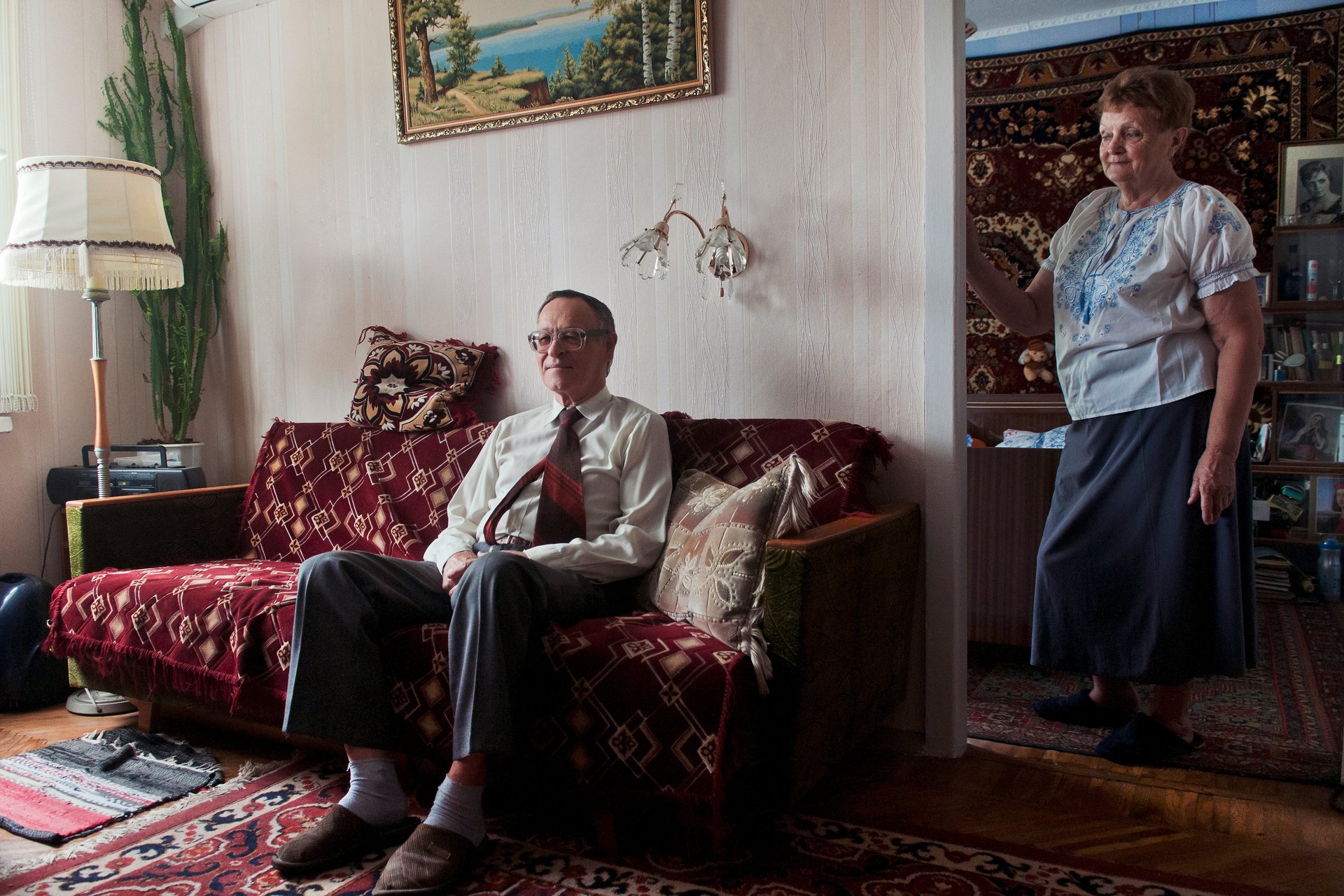
While the situation in eastern Ukraine has grown increasingly bloody over the past 12 months as Moscow-backed rebels and Ukraine government forces battle for control of the area, it wasn’t always this way, according to Yushko. Growing up, she never felt that her family was divided politically or culturally. Born in Ukraine but a longtime resident of Moscow, Yushko said she was nonetheless surprised that her parent’s portrait seemed to strike such a strong chord online. ”Love, like art and music does not have any borders,” one commenter wrote. “Stop the ICE AGE!!…Peace, no war indeed,” another offered.
Expanding her project to include couples from Moscow to the Russian Far East to Crimea, Yushko hopes that her ever-expanding series of portraits will remind viewers of the powerful, perhaps even peacemaking, effects of love.
So far, her favorite photo features the Ukrainian-born Dasha and Russian-born Maxim, both now residing in Moscow. “Their love story started half a year ago,” Yushko said. The pair met serendipitously on a summer day in Voronezh, Russia, when they used the same ride-sharing service to “end up spending 7 hours together in the back seat,” Yushko explained. “Maxim told me that it was love at first sight. I loved working with them and listening to their story. They may be divided by the color of their passports, but that’s nothing when compared to their love.”
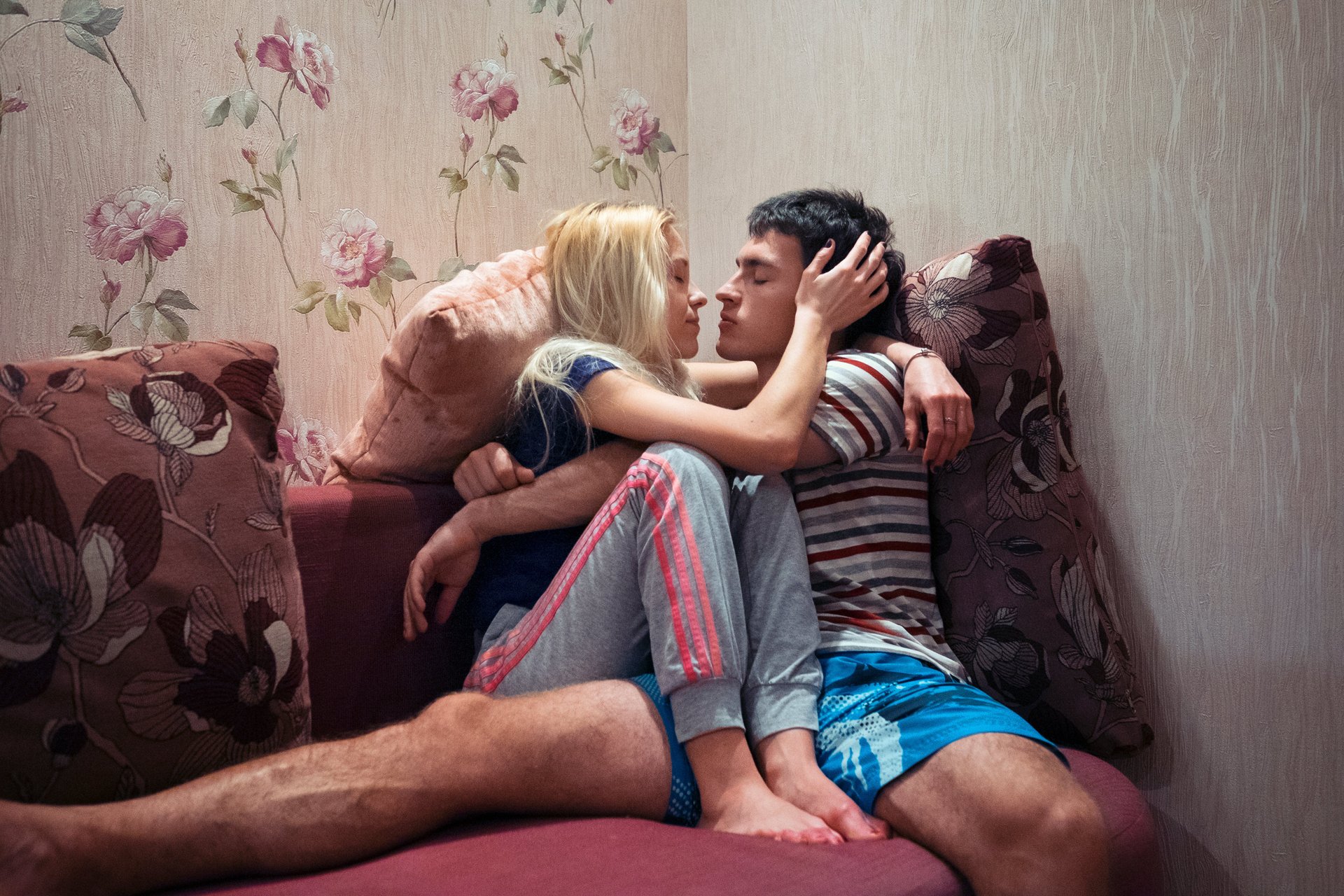
Yushko is quick to note out that her art is not necessarily meant to be political. Imbued with a sense of almost quaint romanticism, the photographer said that she hopes her photos give people—especially those in war-torn areas—tools to help create a brighter future. “We too often lack kind words for each other. Traveling and talking to people, trying to understand their opinions, this is the best way we can communicate without prejudice and stereotypes,” she said.
While unlikely to significantly cool geopolitical tensions, Yushko’s emphasis on human connection has certainly helped her project garner attention, primarily through word of mouth and social media. ”I speak to one person, and then he speaks to someone else. I call this concept +1,” she said. “This way we can change a little things around us in our world going, one person at a time.”
